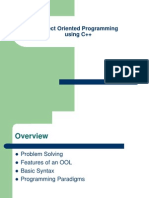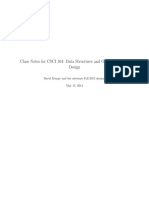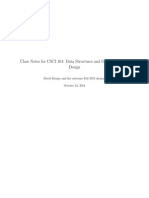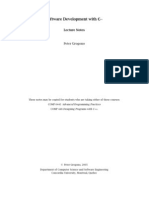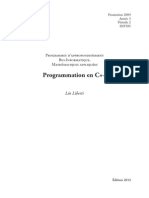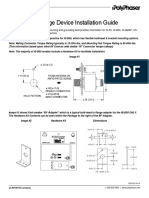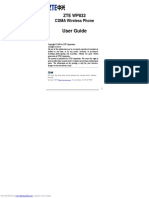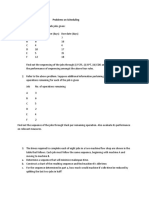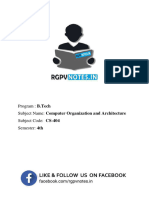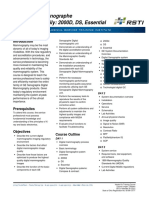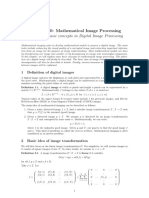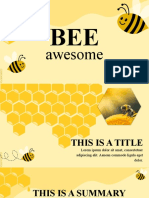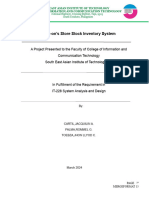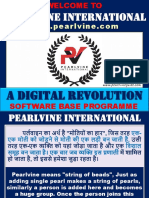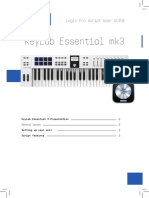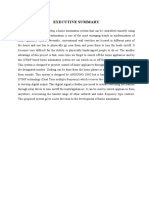0% found this document useful (0 votes)
76 views19 pagesCourse Contents
This document provides a comprehensive overview of C++ tutorials covering topics such as variables, data types, operators, control flow, functions, arrays, classes, inheritance, templates, the Standard Template Library (STL), Boost libraries, multi-threaded programming, and OpenMP. It discusses concepts like variables, loops, conditionals, functions, classes, inheritance, templates, STL containers and algorithms, Boost containers and utilities, threading with Boost and OpenMP, and applications of C++ design and implementation. The document serves as a guide for learning C++ from basic to advanced concepts.
Uploaded by
Savithri ChinnamaniCopyright
© Attribution Non-Commercial (BY-NC)
We take content rights seriously. If you suspect this is your content, claim it here.
Available Formats
Download as DOCX, PDF, TXT or read online on Scribd
0% found this document useful (0 votes)
76 views19 pagesCourse Contents
This document provides a comprehensive overview of C++ tutorials covering topics such as variables, data types, operators, control flow, functions, arrays, classes, inheritance, templates, the Standard Template Library (STL), Boost libraries, multi-threaded programming, and OpenMP. It discusses concepts like variables, loops, conditionals, functions, classes, inheritance, templates, STL containers and algorithms, Boost containers and utilities, threading with Boost and OpenMP, and applications of C++ design and implementation. The document serves as a guide for learning C++ from basic to advanced concepts.
Uploaded by
Savithri ChinnamaniCopyright
© Attribution Non-Commercial (BY-NC)
We take content rights seriously. If you suspect this is your content, claim it here.
Available Formats
Download as DOCX, PDF, TXT or read online on Scribd
/ 19





